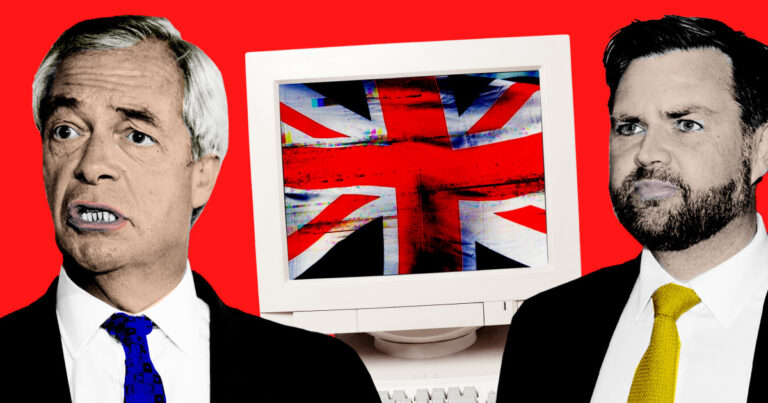U.S. Politicians Critique U.K. Online Safety Act
A growing number of U.S. politicians are raising alarms about a new British law that mandates age verification for some websites and applications, affecting even those based in the U.S. The U.K.’s Online Safety Act went into effect on July 25 and has garnered bipartisan discontent among lawmakers across the Atlantic.
Bipartisan Concerns in Congress
A recent delegation from Congress, part of a bipartisan group, visited London to address their apprehensions regarding the Online Safety Act. Critics, including Vice President JD Vance, argue that the law targets free expression and disproportionately harms vulnerable communities. Privacy activists have echoed these sentiments, stressing that such regulations could lead to censorship.
Warnings Against Censorship
During an in-person briefing in London, Vice President Vance reiterated his criticisms, cautioning the U.K. government about the dangerous path of online censorship they may be treading. He likened the law’s implications to efforts by the Biden administration, suggesting that it could set a worrying precedent for free speech.
Administration of the Online Safety Act
The U.K. Online Safety Act aims to shield children from harmful online content by requiring internet companies to verify users’ ages. This includes not just adult websites but also platforms like Spotify and message boards discussing sensitive topics. For instance, Reddit has imposed rigorous age-gating measures to comply with the law, limiting access to various threads, including those associated with health and serious content.
American Opposition and Free Speech Concerns
U.S. lawmakers are concerned that compliance with the U.K. law could set a precedent for American tech firms, forcing them to navigate complex international regulations. House Judiciary Chairman Jim Jordan expressed that the law constitutes a “serious chilling effect” on free expression, posing a threat to the First Amendment rights of American citizens and companies.
Public Opinion and Future Implications
Despite the backlash from U.S. politicians, the British public appears to support the Online Safety Act, with a recent YouGov poll indicating that 69% approve of the regulations. Nonetheless, skepticism remains about the law’s effectiveness in curbing minors’ access to explicit material.
Notable Reactions from Tech Companies
Most U.S.-based tech companies are adapting to the new law. Microsoft announced it would implement age verification for Xbox users in the U.K., while Discord announced new settings that automatically limit content exposure for users unless their age is verified. However, some platforms like Gab openly rejected compliance, prioritizing free speech over regulatory adherence.
The U.K.’s Online Safety Act represents one of the most comprehensive attempts by any democracy to regulate online content in the interest of protecting children. As debates continue, the ramifications of this law could extend far beyond British borders, raising questions about free speech and internet governance globally.
